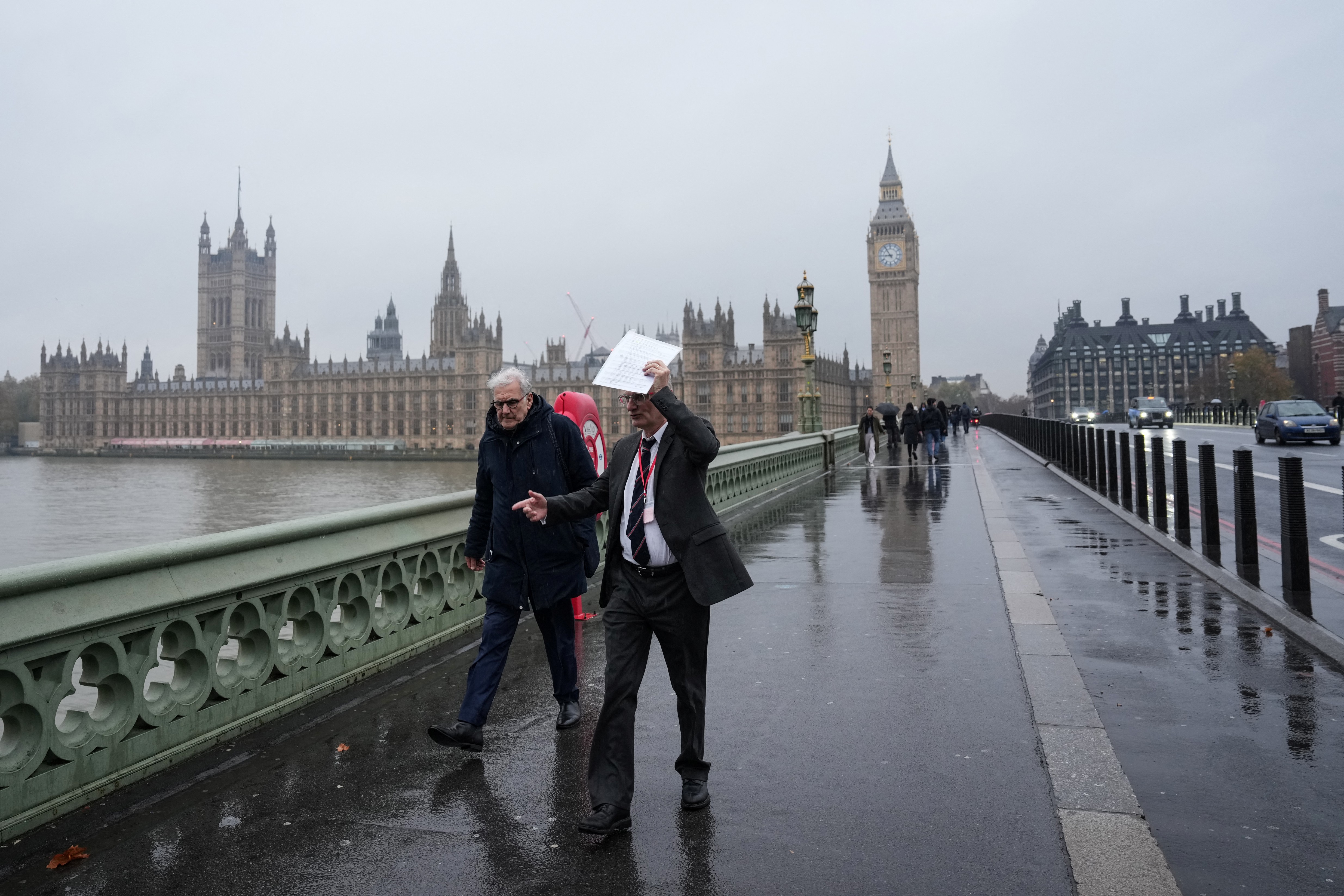
LONDON - As Britain prepares to unveil its 2025 Autumn Budget, analysts note that the main risks facing the economy appear to be shifting. Rather than weak growth figures alone, growing concerns now center on policy drift, as unclear official signals and the absence of a coherent long-term strategy are widely seen as weighing on confidence among businesses and households.
Economic weakness from policy drift
Britain's recent economic underperformance has often been attributed to external headwinds, including global trade tensions and industry-specific disruptions. However, John Bryson, a professor of the University of Birmingham, told Xinhua that domestic policy uncertainty has also played a significant role.
"Part of the current stagnation is down to repeated waves of uncertainty created by the present government. It seems unable to balance taxation with public-sector spending, and the outcome has been weaker business investment and reduced consumer confidence," he said.
Bryson said the deeper problem lies in the lack of strategic direction from the government, which has resulted in what he described as "confused governance," leaving businesses and consumers without a stable framework for planning and decision-making.
ALSO READ: Brexit hit to UK economy double official estimate, study finds
Ian Scott, a professor of the University of Manchester told Xinhua that he shared similar concerns, warning that economic management is now as much a political challenge as a fiscal one.
"The Autumn Budget is becoming one of the most important budgets in years, even since the financial crisis. In many ways, what happens behind the scenes politically now matters more than the actual money," Scott said.
He said political considerations have increasingly shaped economic decision-making. "Prime Minister Keir Starmer is hoping for signs of growth -- lower inflation, falling interest rates and a stabilising labour market -- to contain internal pressures."
Scott noted that fiscal pressures are intensifying as the government attempts to shield households from rising living costs while maintaining discipline over public finances. "It now looks as if (Chancellor of the Exchequer) Reeves may give with one hand and take away with the other."
Policy uncertainty brakes investment
Beyond weak growth itself, uncertainty has increasingly been identified as a self-reinforcing drag on business confidence and investment decisions.
Bryson recalled that repeated pre-budget briefings unsettled markets in 2024 and said a similar pattern has re-emerged in 2025. He said a steady stream of unofficial briefings and shifting messages has created an environment in which firms are reluctant to commit to long-term investment decisions.
Many companies, he said, are now asking a simple question: "Should we invest in Britain at this moment?" In too many cases, the answer has been to delay projects, scale back expansion plans, or divert investment to other markets.
ALSO READ: UK's Starmer, Reeves ditch budget plan to increase income tax rates, FT reports
Scott said shifting signals have also damaged political credibility. Weeks of media reports hinting at potential tax changes, followed by abrupt changes of direction, have affected public perception of the government, he said.
Business organizations have echoed these concerns. The Confederation of British Industry (CBI) has warned that repeated, piecemeal policy adjustments risk gradually eroding corporate confidence. Companies, the CBI said, will ultimately judge the Budget not by political messaging, but by whether it brings greater clarity and creates more stable conditions for long-term investment.
Louise Hellem, chief economist at the CBI, said, "as the Budget approaches, there's an overwhelming sense of a country, and an economy, in stasis. Strategies have been designed and debated, but action has lagged behind -- leaving business confidence to ebb and investment to stall. This has only been exacerbated by rising business costs and growing uncertainty caused by policies like the Employment Rights Bill," she said.
Experts urge clearer, stable reforms
Despite their criticisms, experts broadly converge on one point: stability and predictability are now more urgent for Britain's economy than further short-term adjustments. CBI Director-General Rain Newton-Smith said the government deserves credit for recognizing the scale of the challenge, but warned that short-term fixes would not deliver sustainable growth.
"Annual patching to plug growing fiscal holes is not a viable way to meet challenges of this scale. We must take tough decisions now, or risk a vicious cycle of robbing Peter to pay Paul that damages our growth prospects," she said.
READ MORE: UK economic growth disappoints in Q3 as JLR cyberattack hits
The CBI urged the government to move more quickly in unlocking growth, calling for faster approval of major infrastructure projects, recruitment of additional planning officials and wider use of public-private partnership models to mobilize private capital and expertise.
Bryson said Britain needs a more coherent framework to support business activity and improve public service efficiency. "This includes not strengthening workers' rights further, reducing tax and administrative burdens on private firms, and reforming public services by focusing on productivity and service quality," he said.
As the Autumn Budget approaches, analysts caution that without clearer direction and stronger policy discipline, Britain's economy could remain constrained by low confidence and modest growth well beyond this year's fiscal statement.


